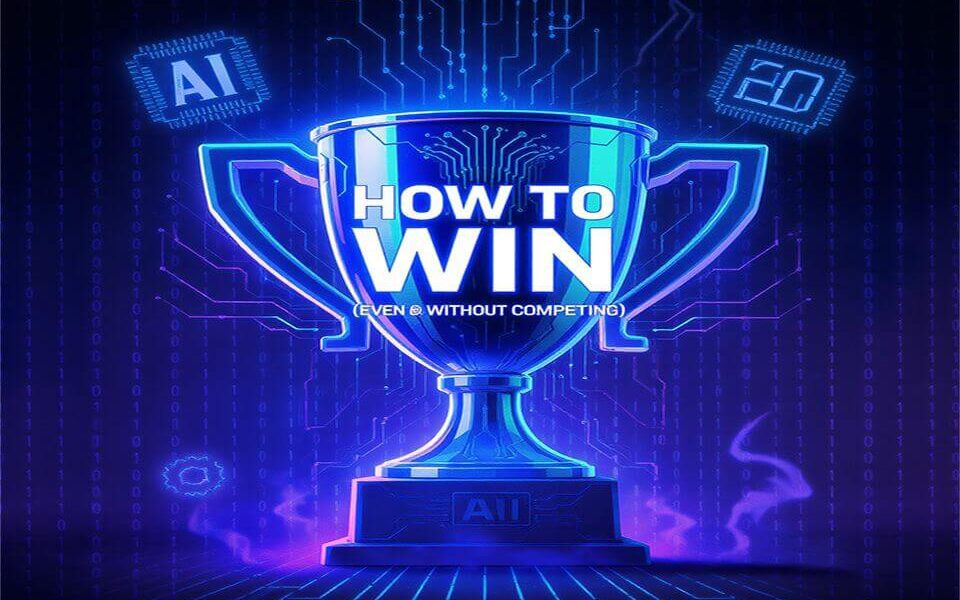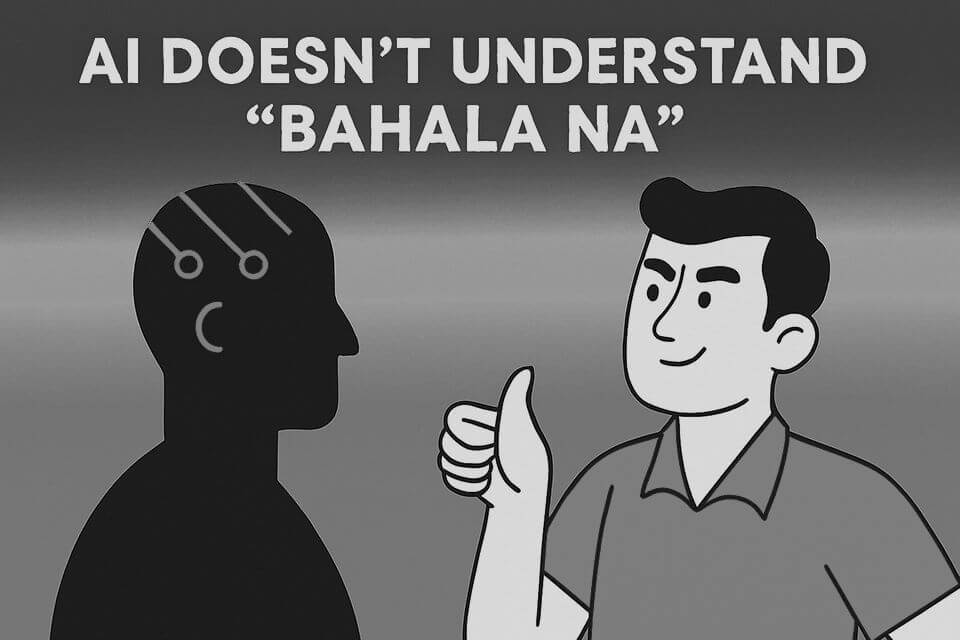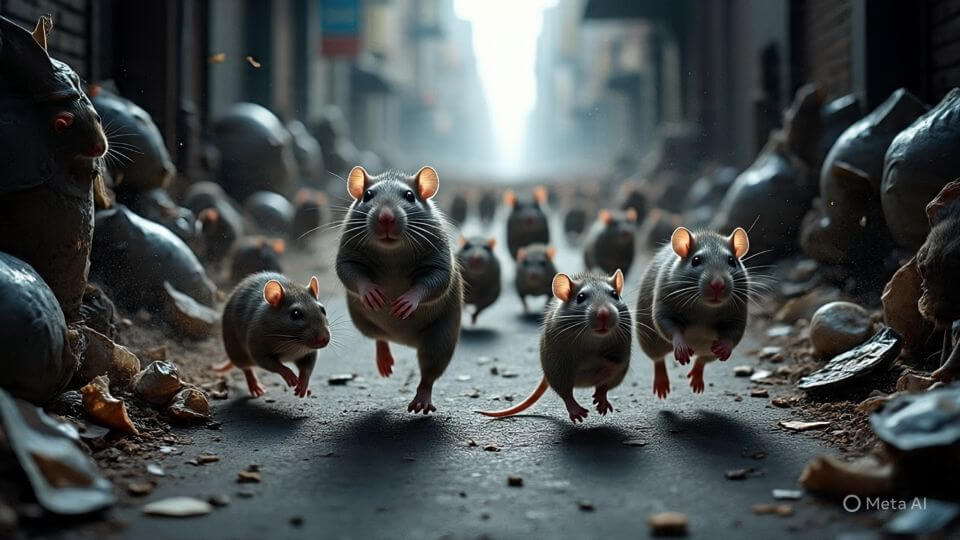Why Competing with AI Is a Losing Game
Let’s face it: If you try to “out-compute” AI, you’ll lose. It can process thousands of resumes faster than HR, design logos in seconds, and even write love letters without overthinking. Competing head-to-head with AI is like trying to out-sing Regine Velasquez at karaoke—it’s just not happening.
But here’s the twist: the real winners in the Age of AI are not those who compete with it, but those who learn how to leverage it.
And yet, many Filipinos remain skeptical. As we’ve explored before, fears around job loss, bias, and privacy are real—especially in industries like BPO where AI automation could displace millions. That’s why “winning” today isn’t just about learning AI, but also knowing when to question it.
Competition With AI vs. Competition Without AI
- AI-Powered Competitors: A student who knows how to use ChatGPT or MidJourney has a huge edge. They don’t waste hours formatting reports or drafting captions—they let AI handle the grunt work and focus on creativity.
- AI-Less Competitors: On the flip side, people who resist AI often get left behind. Imagine writing a 10-page thesis by hand while your classmates generate an outline in minutes. You’re working harder but achieving less.
The competition isn’t human vs. human anymore. It’s human+AI vs. human-without-AI. Guess which side wins?
But here’s where it gets tricky. As “Danger Alert” warned, blind reliance on AI could open the door to worst-case scenarios: mass unemployment, surveillance, bias, and deepfakes. So the real competition is not just about productivity—it’s about how you use AI responsibly while staying human.
Negotiation in the Age of AI
Here’s where AI becomes your “secret negotiator”:
- Salary Negotiation: You can use AI to simulate interview questions, predict HR counteroffers, and prepare data-backed arguments.
- Business Deals: AI can analyze competitor pricing, market trends, and even suggest persuasive scripts for pitching clients.
- Everyday Life: From haggling with a car dealer to deciding if your suki (regular vendor) at the palengke (wet market) is giving you a fair price—AI can help you calculate fairness instantly.
But negotiation also means knowing AI’s blind spots. Algorithms can reflect bias. They can be trained on incomplete or unfair data. If you’re negotiating and you know the AI tools involved have limitations, that knowledge itself gives you leverage.
Going All-In With AI: My Personal Breakthrough
I’ll be real: Going insanely all-in with AI was the best decision I ever made.
At first, I failed. I gave AI too much control, sometimes relied on the wrong outputs, or even embarrassed myself with copy-paste results. But those failures were part of the process.
Now? Winning is easier with AI. What used to take me days can now be done in hours—or even minutes. AI is like having a 24/7 assistant, research team, and creative partner rolled into one.
And honestly, I can’t go back to my former self without AI. The old way feels slow, outdated, and exhausting. Once you’ve experienced the leverage AI gives, returning to manual mode feels like giving up half your power.
That’s why I’m convinced: you don’t just survive in the Age of AI—you thrive by going all-in.
How to Win Without Competing
Here’s the secret: You don’t need to compete with AI—you need to collaborate with it.
Think of AI as your barkada (friend group) who always has time to help. Instead of treating it as a rival:
- Let AI do the heavy lifting (data, drafts, calculations).
- Focus on what makes you uniquely human (empathy, humor, intuition).
- Use AI as your “first draft,” but put your personal flavor on top.
It’s not about racing AI—it’s about running with AI.
At the same time, remember the warnings from AI Skepticism in the Philippines: infrastructure gaps, bias, and lack of trust are real barriers. Winning means not just adopting AI but making sure access and fairness are part of the equation.
Explain Like I’m 12
Competing with AI is like racing against a jeepney while you’re walking barefoot. You’ll never win. But if you hop on the jeepney and let it carry you, suddenly you’re ahead.
So the question isn’t, “Can I beat AI?” The question is, “How can I ride AI to win faster?”
The Filipino Advantage
Filipinos already know how to thrive in tricky situations:
- We excel at diskarte (resourcefulness).
- We adapt quickly (just look at how fast we embraced TikTok trends).
- We value relationships, which AI can’t replicate.
But our skepticism is also an advantage. We ask: Is this fair? Is this safe? Who benefits? That mindset helps protect us from the darker sides of AI—what “Danger Alert” called the worst-case scenarios: mass job loss, deepfake chaos, or surveillance overreach.
So instead of being threatened by AI, Filipinos can turn it into a secret weapon—one that balances innovation with responsibility.
Conclusion: Winning Without Fighting
In the Age of AI, you don’t win by competing head-to-head. You win by outsmarting the game—negotiating smarter, creating faster, and adding the human touch that AI lacks.
But winning also means staying alert. Blind trust can lead to friendflation, bias, or worst-case scenarios. The real winners will be those who embrace AI as a partner while demanding transparency, fairness, and humanity.
👉 The real winners aren’t those who fear AI or fight it. The real winners are those who ride AI to opportunities others can’t even see—while keeping one hand on the brake.
Follow aiwhylive.com for more bold strategies, Filipino-flavored insights, and the playbook for thriving in the AI era.







